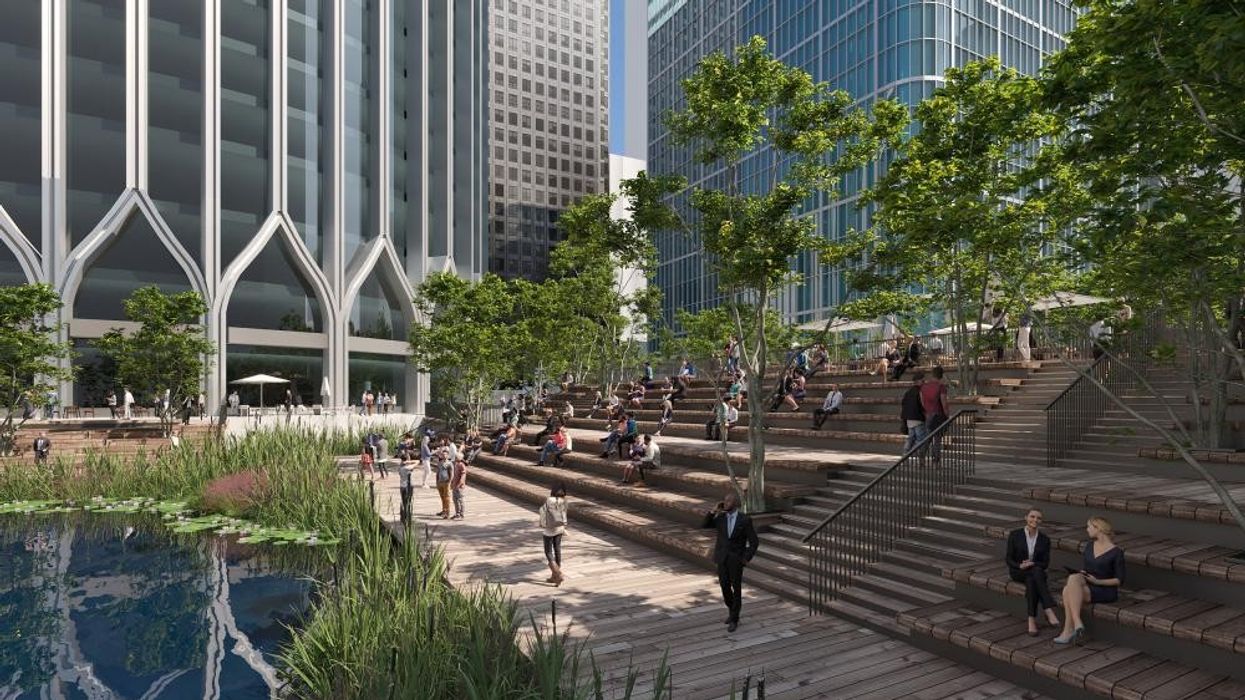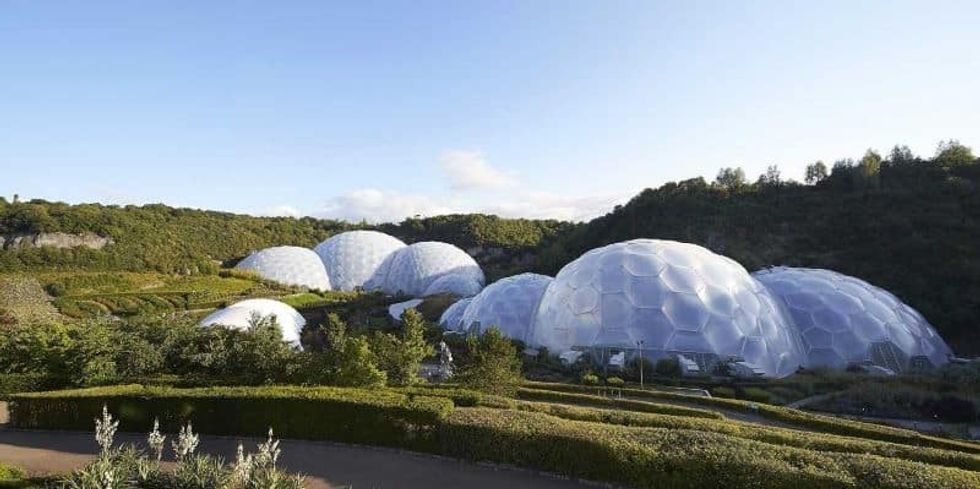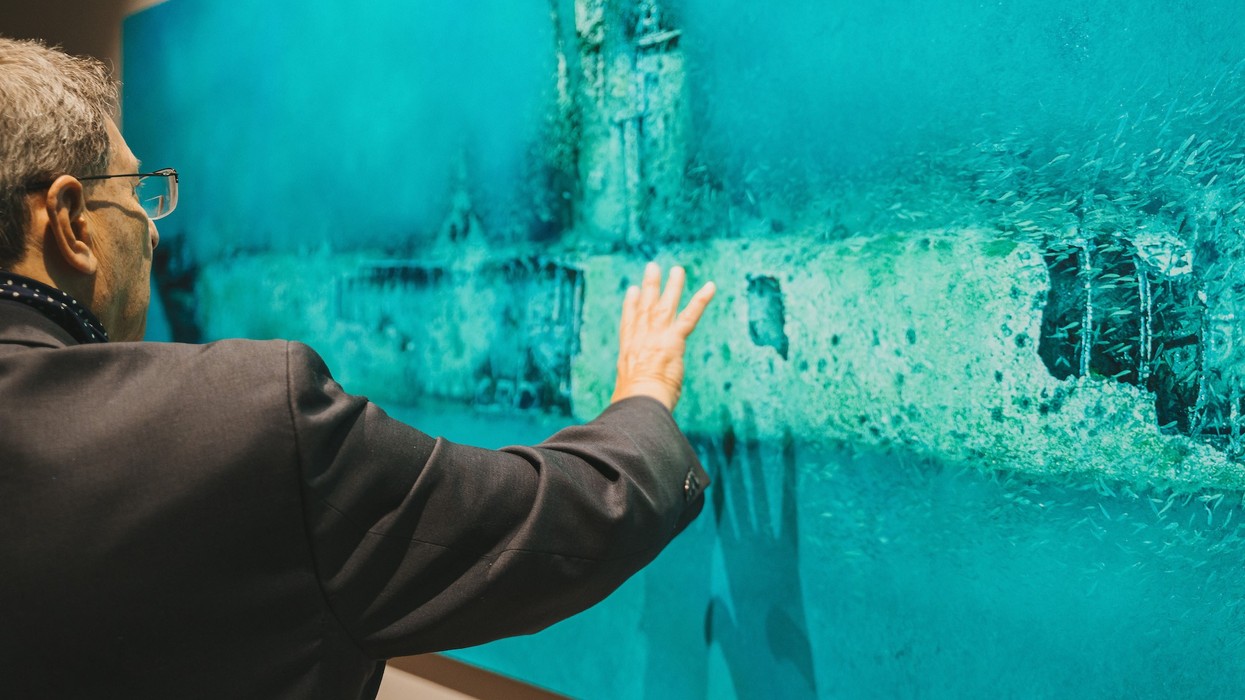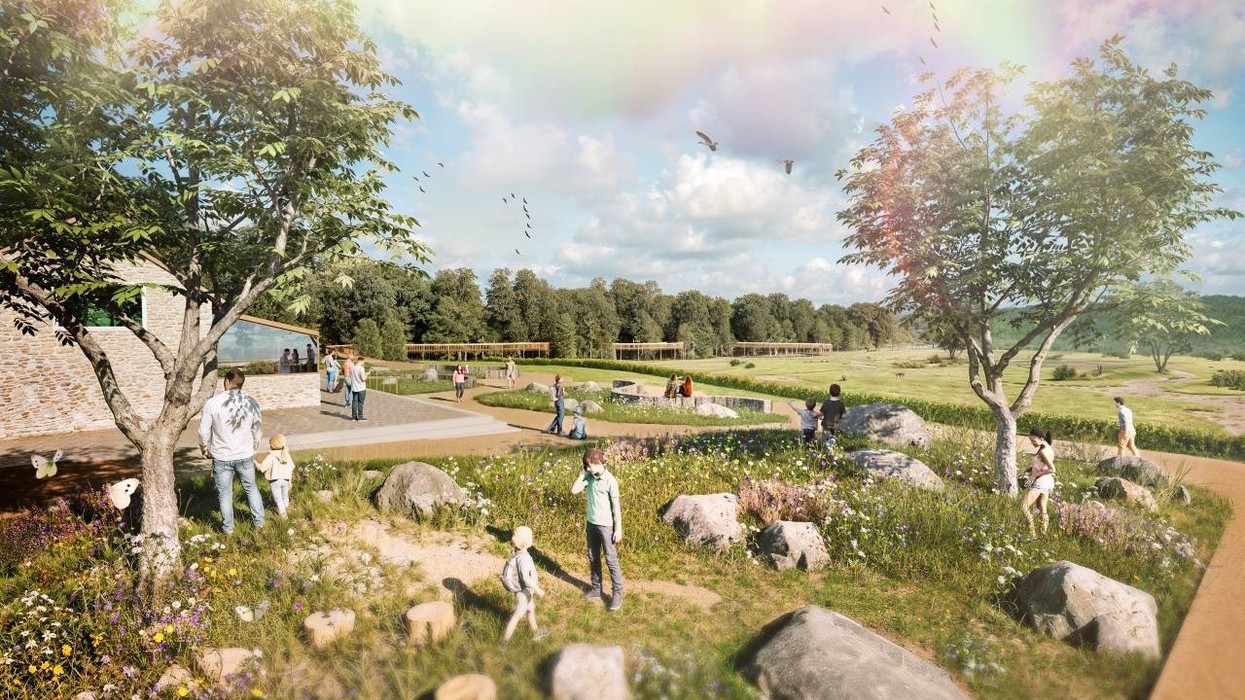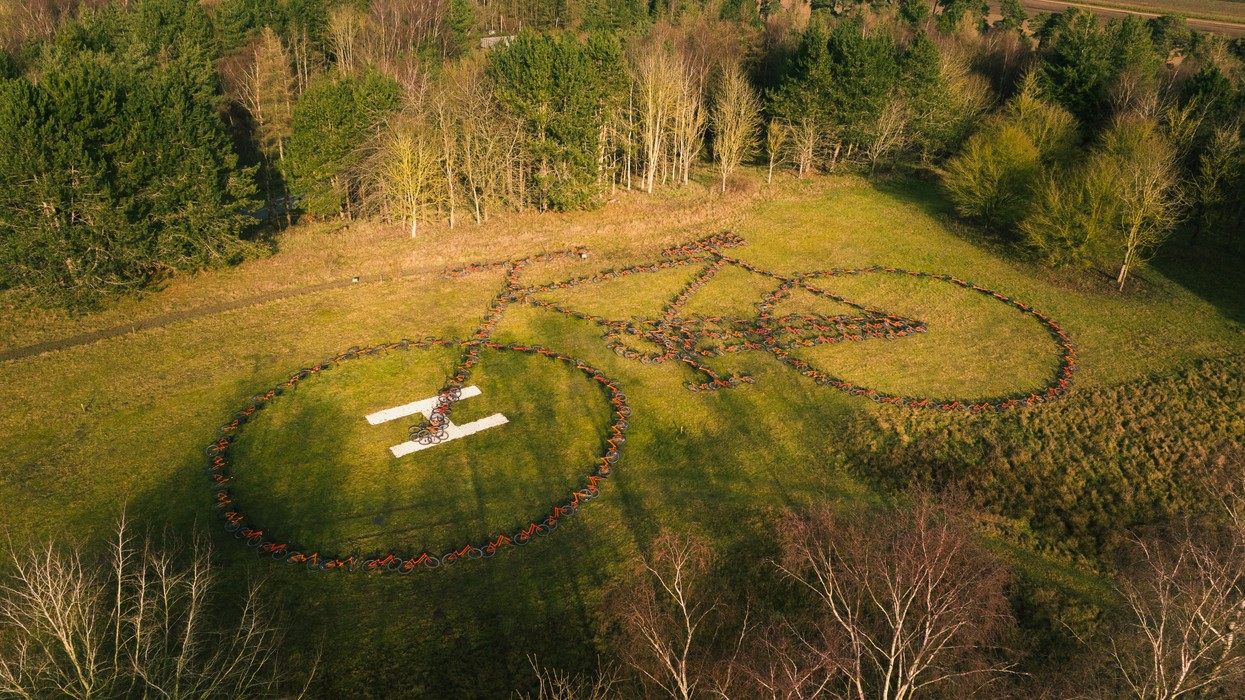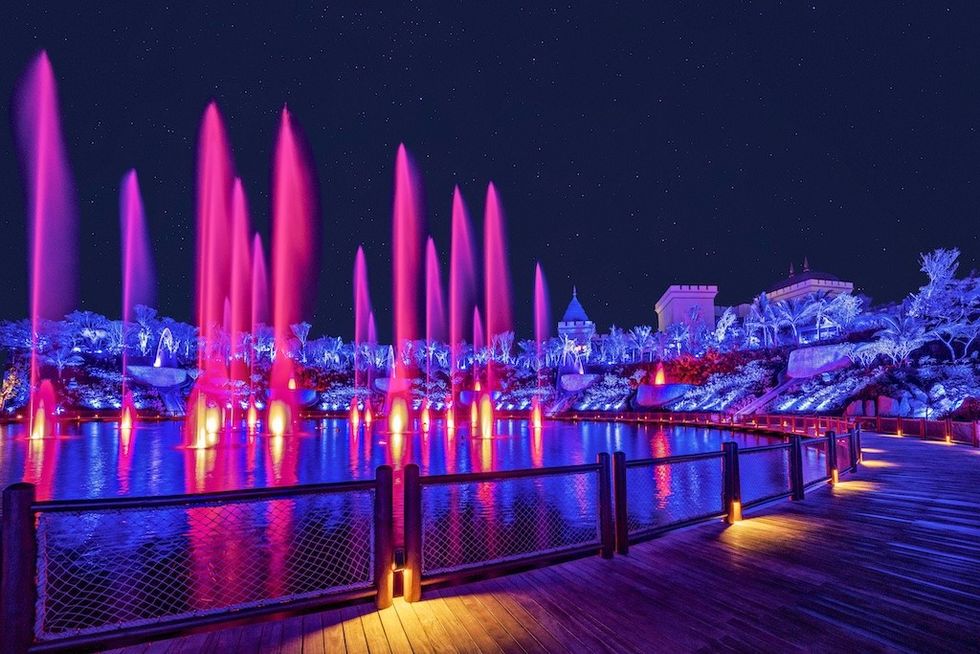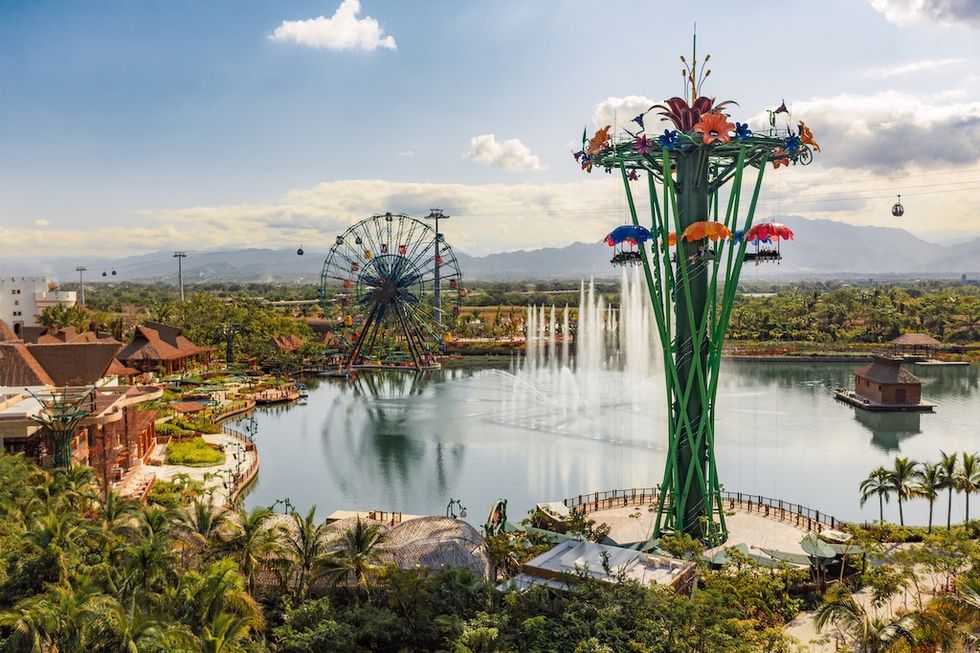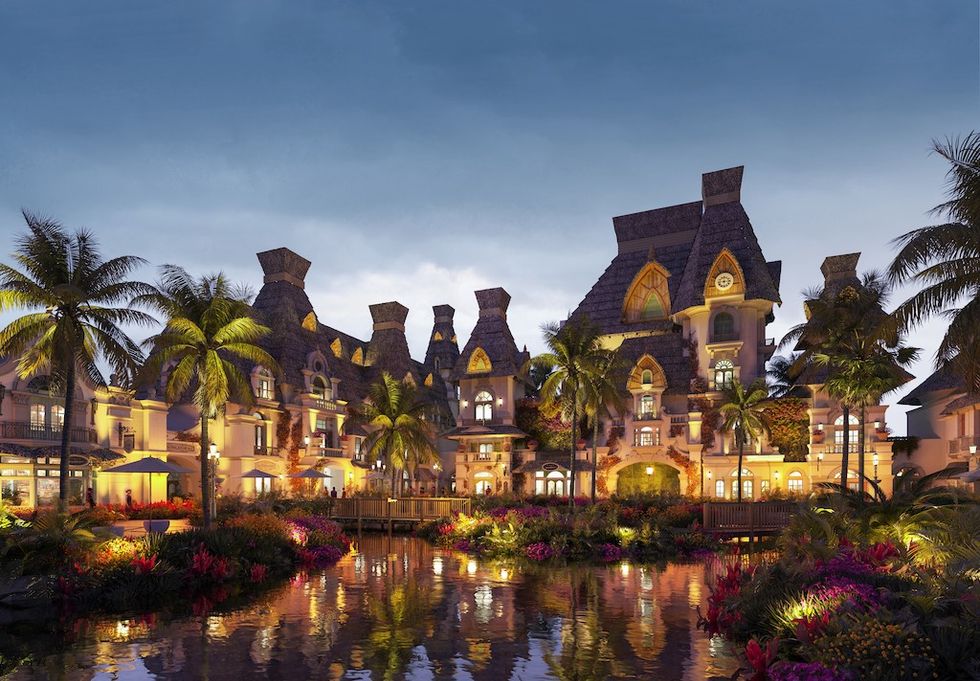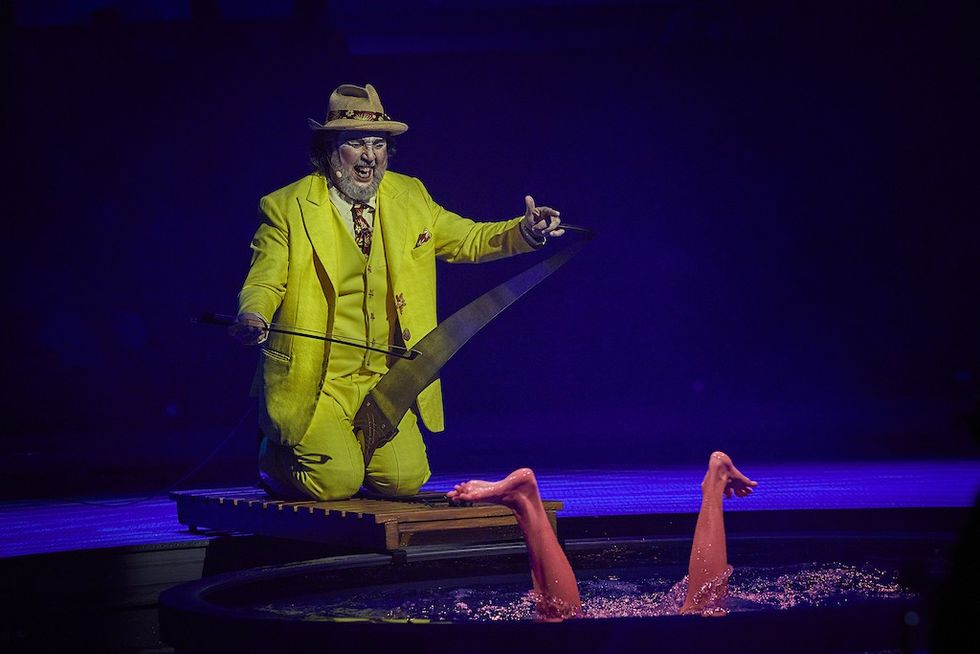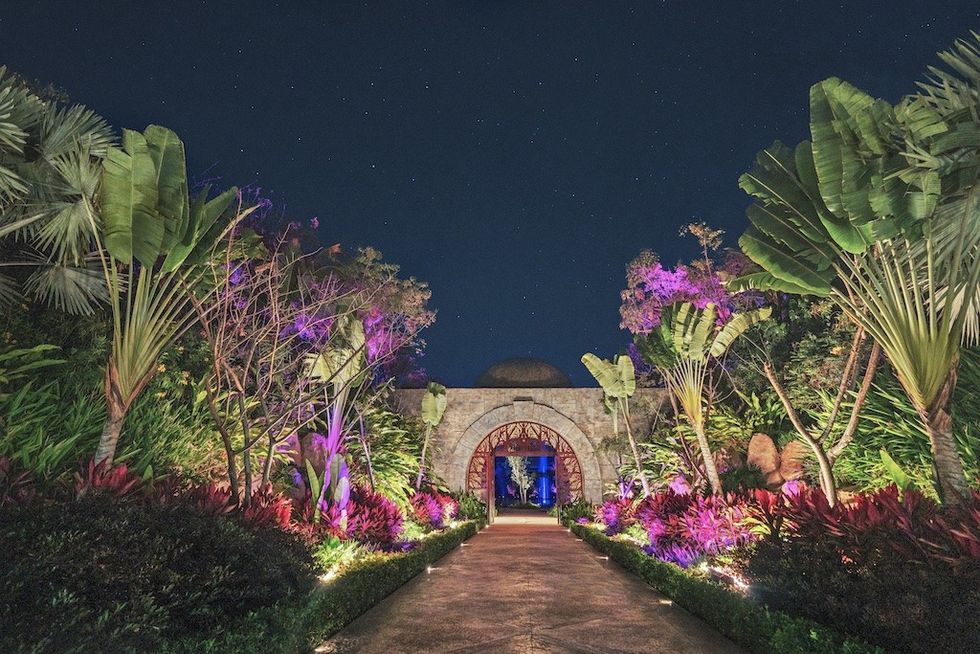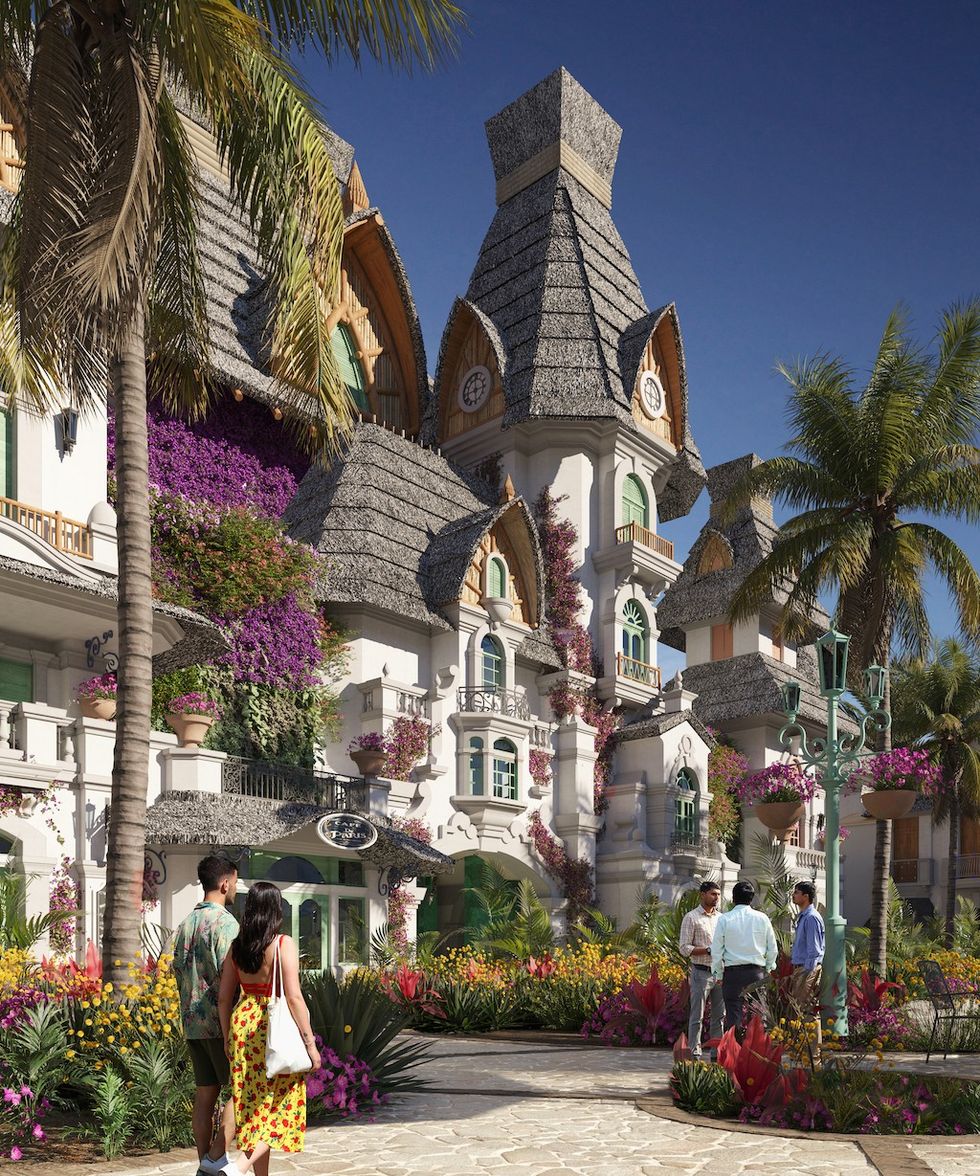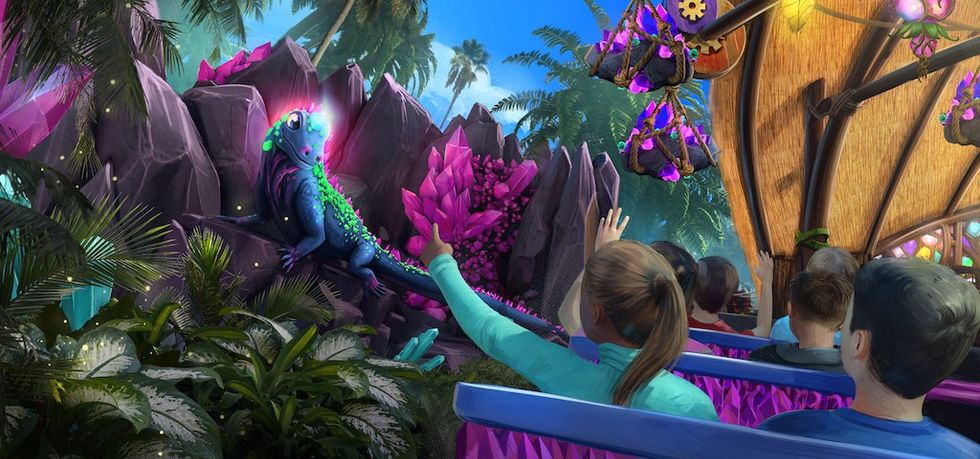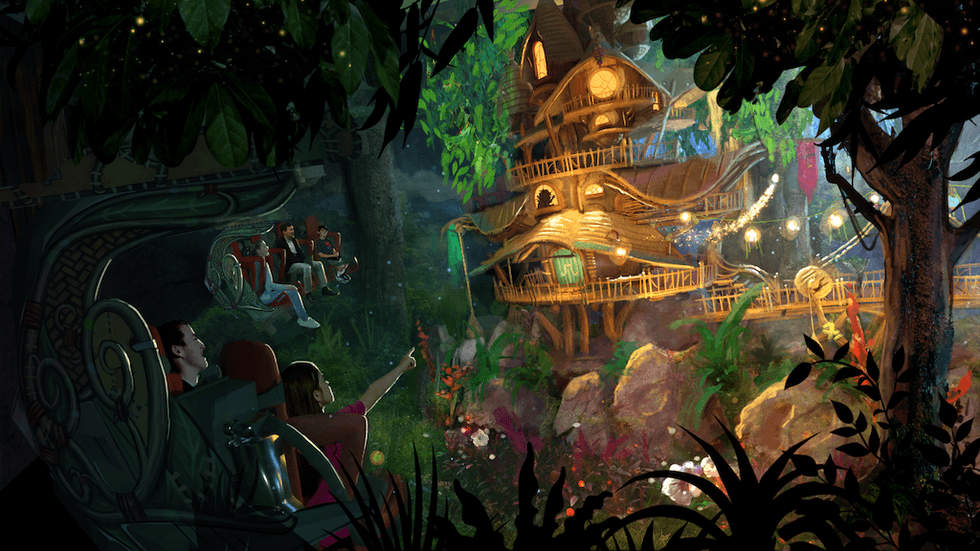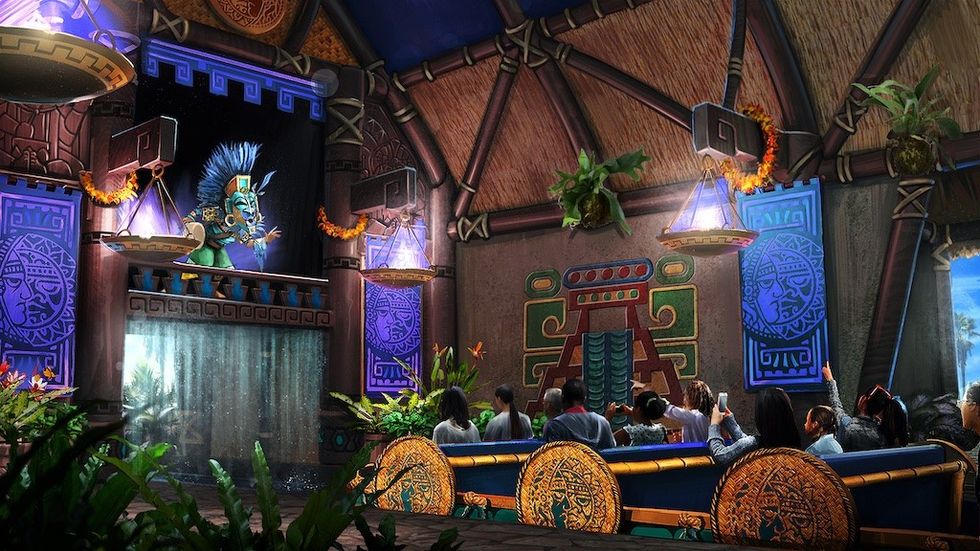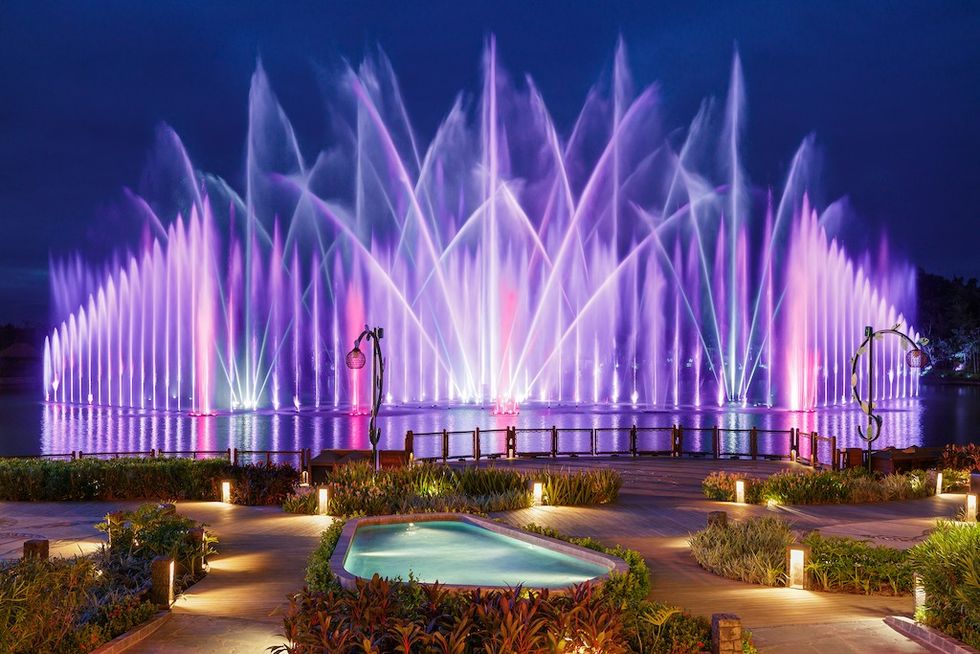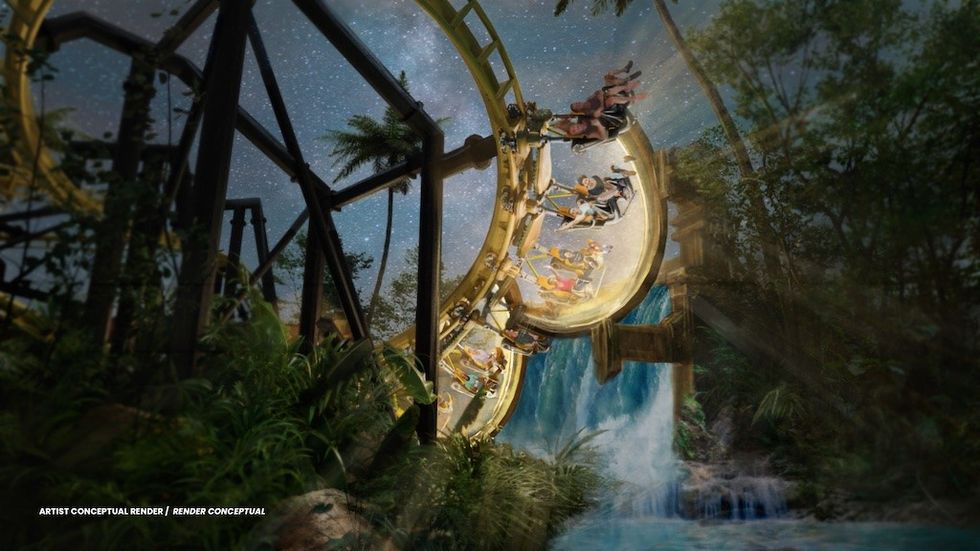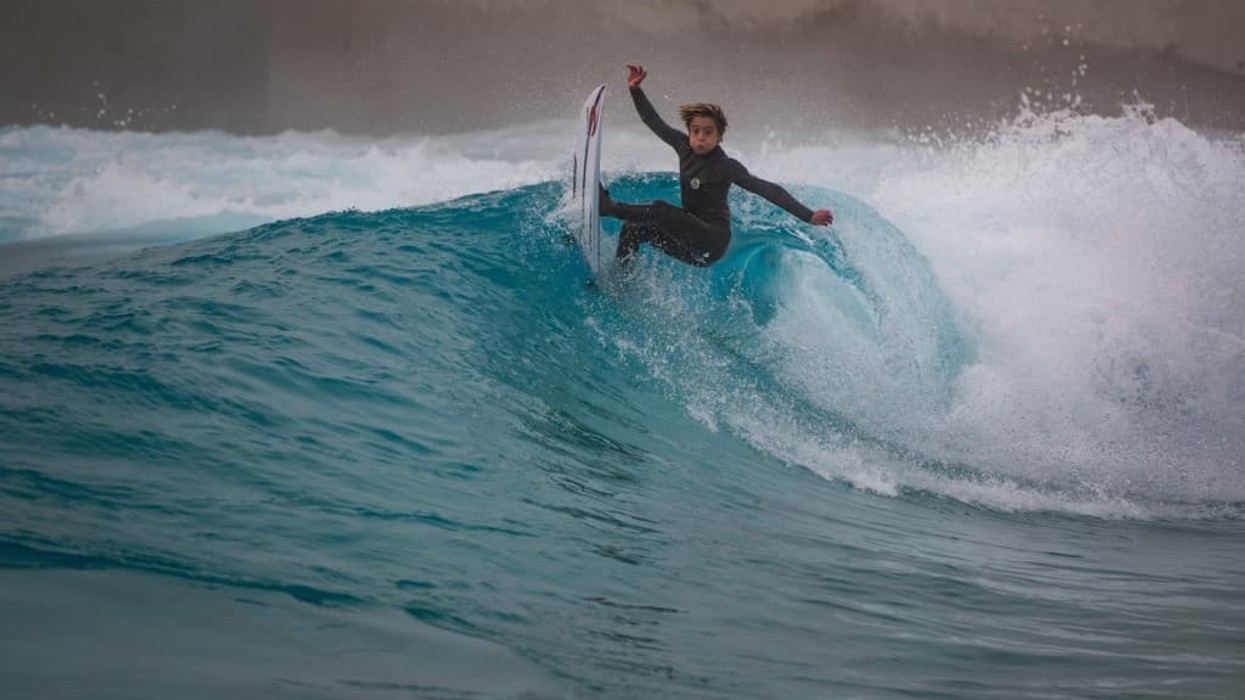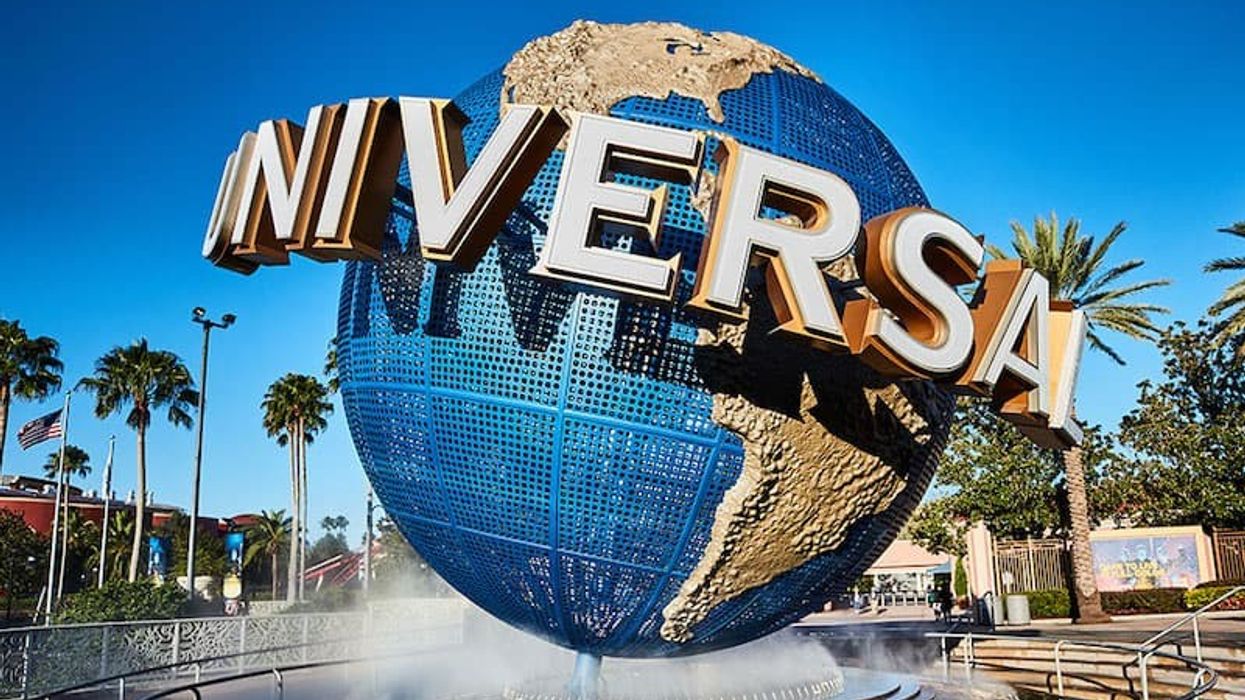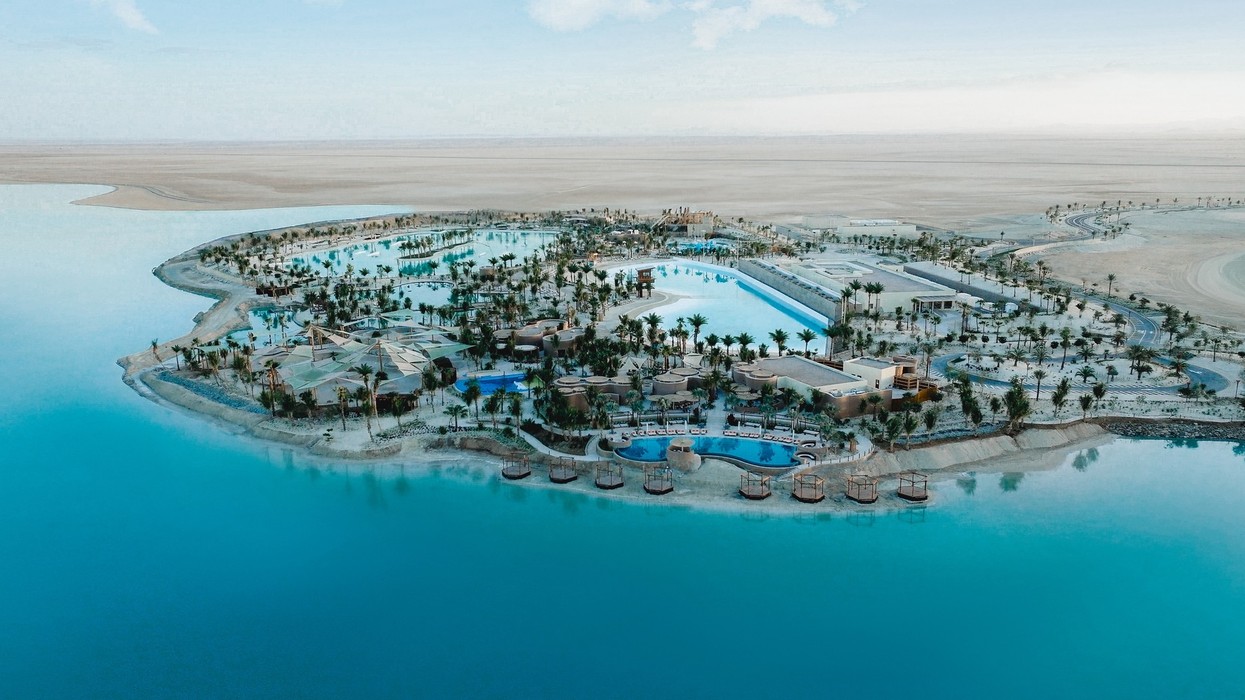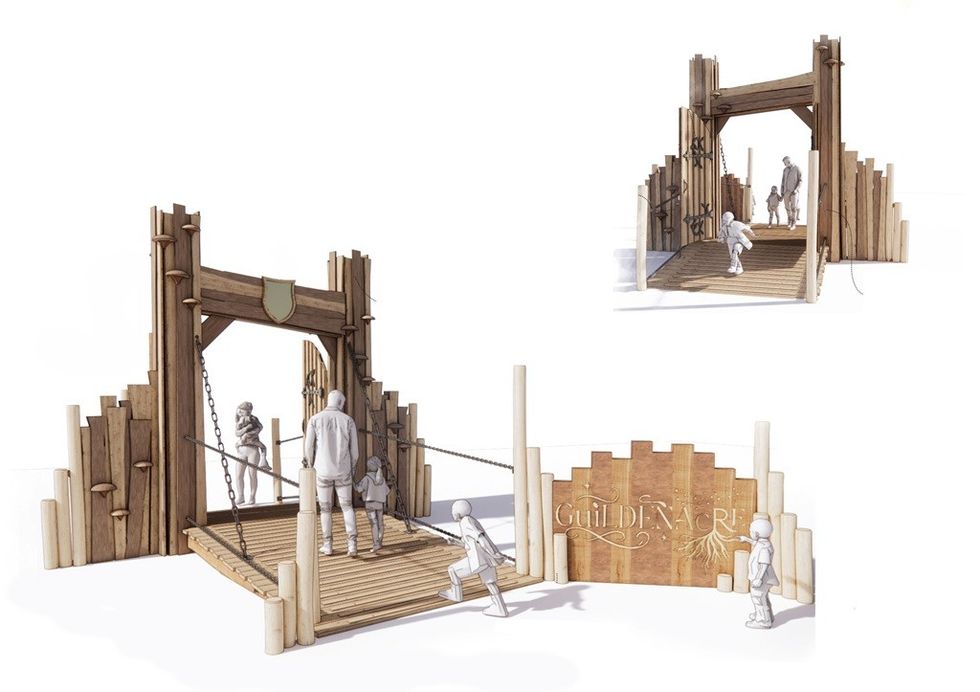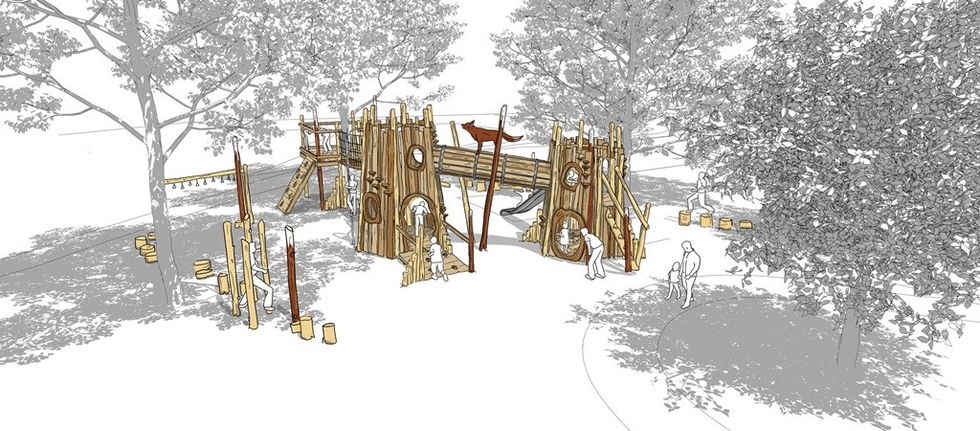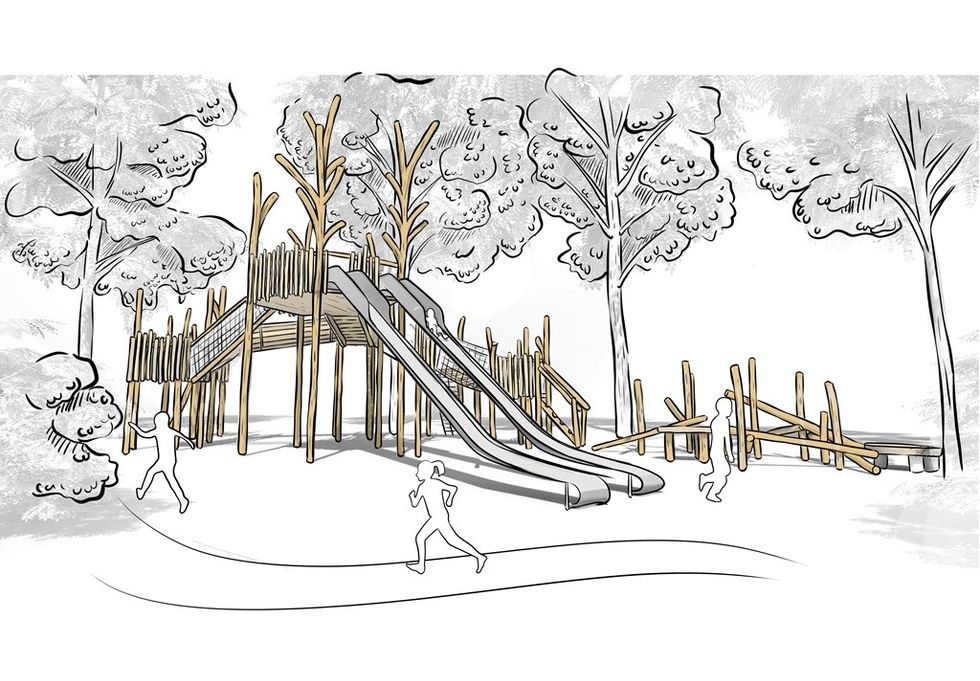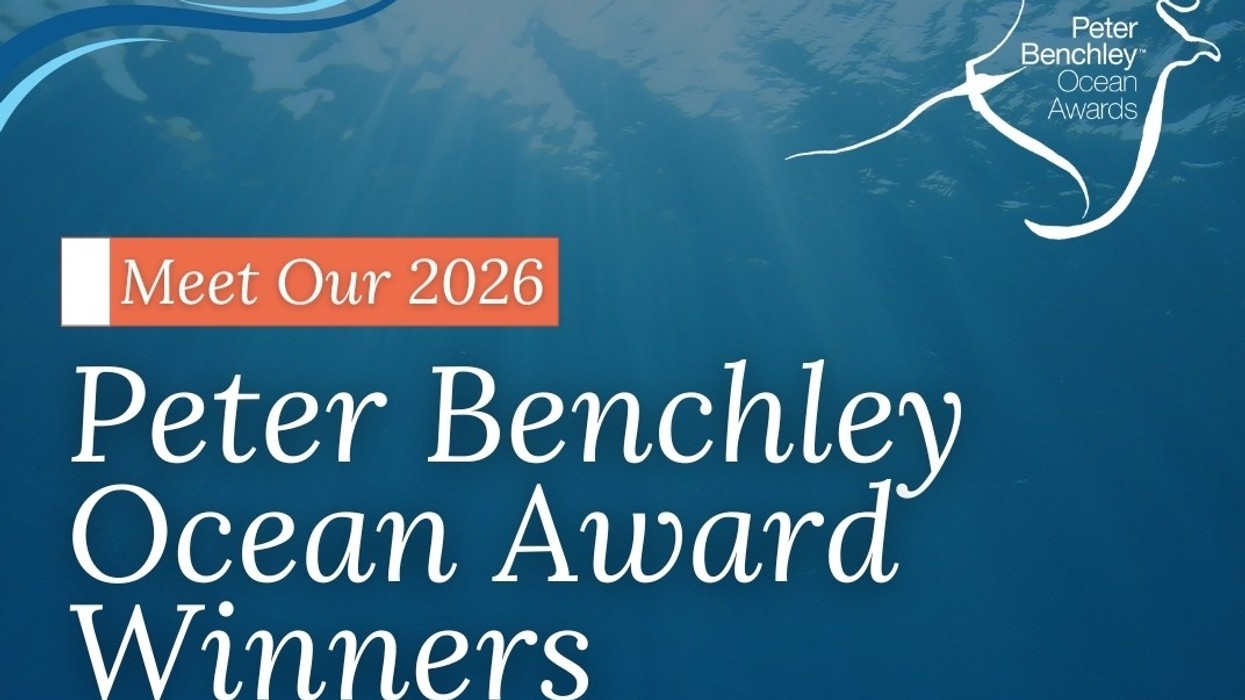Grupo Vidanta has announced plans for a new destination, BON Luxury Theme Park in Nuevo Vallarta, Mexico, marking its move into the themed entertainment sector. The project reflects the company’s ongoing interest in expanding beyond hospitality and resorts into experiences designed to attract both domestic and international visitors.

BON Luxury Theme Park is positioned as a high-end attraction that will combine themed environments, entertainment, dining, and leisure offerings within a single destination.
Rather than focusing solely on thrill rides, the concept aims to create a more rounded guest experience, with attention to design, storytelling, and comfort.
This approach aligns with wider trends in the theme park industry, where visitors are increasingly seeking immersive spaces suitable for various age groups and travel profiles.

With BON scheduled to open in autumn 2026, we speak to Iván Chávez, executive vice president of Grupo Vidanta.
He discusses what visitors can expect, how the company’s extensive experience in managing resort destinations will influence the park’s design and operation, and how he plans to establish new standards for premium, experience-led attractions.
Redefining Mexico’s resort offering
Grupo Vidanta has been operating in Mexico’s tourism industry for over 50 years, distinguishing itself as a leader in the luxury beach resort market.
“Even though we have beautiful resorts with pools, beach clubs, suites, and all of the traditional resort offerings, we’ve worked hard to incorporate world‑class entertainment into our latest developments,” says Chávez.
“That started because our guests were demanding more, and also because we wanted Mexico to compete on a global platform. We realised that a pool and a margarita wouldn’t be enough forever; we needed to offer much more.
"The luxury traveller, especially families, has become more active. They want to be entertained without sacrificing comfort.”

So, over the last decade, the company has made it its mission to create beach resorts that also offer premium entertainment.
“One of our first major steps was partnering with Cirque du Soleil. We wanted to bring one of the best‑known entertainment brands in the world to create a permanent show at one of our properties. We did that in Riviera Maya with JOYÀ, which just turned 11.
“We incorporated dinner because we wanted to offer something truly unique, and it was extremely well received.”

Next, the team opened the Jungala Aqua Experience.
“I don’t like to call Jungala a water park, because it’s much more than that,” says Chávez. “We wanted to create a luxury experience for everyone in the destination.
“When people hear the term ‘water park’, they imagine overcrowding. We asked ourselves if we could make it a luxury product.
“We added VIP cabanas with full-service bars, bartenders creating mixology on site, and full‑service restaurants where you can order directly to your cabana. That was Jungala.
"And now we’re doing something similar, but on a much larger scale, with BON Luxury Theme Park.”
BON Luxury Theme Park
Grupo Vidanta has designed BON as a world‑class attraction, working with the world’s best attraction designers and manufacturers.
“What’s unique is that we want guests to enjoy the experience without feeling like they need a vacation from their vacation. We don’t want people to be exhausted or forced to choose between relaxation and entertainment. We want them to do both.”
That’s why, he says, BON is designed for all generations:
“We want parents and grandparents to be just as excited as the kids. Kids can have the time of their lives without it being at the expense of the adults’ experience.
"There are plenty of places to relax, to enjoy great food, to feel entertained, and to feel like you’re discovering Mexico—its beauty, nature, food, and service.”

BON stands for Beauty of Nature, and promises world‑class attractions that don’t exist anywhere else in Latin America. This includes the recent premiere of Cirque du Soleil's new show, LUDÕ.
This water-themed dining experience is housed in a $200 million theatre with a 360-degree aquatic stage and wrap-around aquarium.
“It’s a water‑based show, the first Cirque has done of this kind in decades, and it includes dinner and drinks in a way that’s very much in line with Vidanta. Guests will get a sneak peek at the quality of the project that’s coming,” says Chávez.

Image credit Marc Montplaisir
“At our core, we’re a beach resort company that loves catering to our guests. We want to offer them the best of all possible worlds, and the missing piece was the theme park world.”
BON is part of VidantaWorld in Nuevo Vallarta, a 2,500-acre entertainment complex that launched this December with LUDÕ and the BON Hotel as phase one. The theme park itself will open in autumn 2026.
The guest experience
When BON Luxury Theme Park opens, guests will be invited to explore several distinct worlds inside the park, all tied together by an overarching theme of fantastical nature.
This includes Harmony Garden, Crystal Plaza, Camino Feliz Boardwalk, Fantasy Gardens, Icon Empire of Light, Land of Legends, Adventure Valley, and the Cirque du Soleil zone. It will be home to 24 attractions, 25 restaurants providing elevated dining experiences, and 16 shops.
“We partnered with the world’s best ride manufacturers, and there will be more than 20 attractions, from smaller, carousel‑type rides to large‑scale coasters. There are indoor and outdoor experiences, family rides, and high‑energy attractions.
“Some attractions will feel familiar in terms of world‑class quality, but every story will be new. We’re working with world‑class production designers and storytellers to introduce new characters, creatures, and stories that both adults and kids can fall in love with.”

Visitors will also find an outdoor lake spectacular, animation throughout the park, characters roaming the spaces, and many surprises. The retail spaces will include authentic, handcrafted goods from Mexico.
“What people may not expect compared to a traditional theme park is how many places there are to relax at BON. There will be lounges where you can sit, decompress, enjoy a margarita, eat great food, and connect while the kids have fun.”
Grupo Vidanta plans to cap capacity to ensure quality and avoid long lines: “We want to deliver a truly luxurious experience. We want BON to feel comfortable, spacious, and special.”
See also: Wonder Creatures: BON Luxury Theme Park's unique entertainment
Sustainability and authenticity
Sustainability, authenticity, and local culture are important to Grupo Vidanta. Speaking about how those ideals are reflected in BON, Chávez says:
“From day one, those values were key. Tourists come to Mexico to experience Mexico, and that’s something the industry sometimes forgets.
"We designed all the content and stories in the park to celebrate Mexico—not in a literal or historical way, but through fantasy inspired by its culture.
“You might see a temple and wonder if it’s Aztec or Mayan, but none of it is real history. It’s all original content, designed to give guests a sense that they truly visited Mexico.”

When it comes to retail, the team visited more than 200 artisans from remote areas across the country:
“We’re working with them to create unique products for the park—hand‑blown glass, ceramics, sculptures, mugs, and tequila glasses. Mexico is incredibly strong in craftsmanship, and we want that represented throughout BON.”
Sustainability is also critical. Vidanta properties follow EarthCheck standards:
“We follow international best practices for energy and water use. We built an on‑site water treatment plant to recycle water for irrigation, monitor laundry water usage with the latest technology, and incorporate energy‑efficient systems.
“We also actively create nature rather than remove it. If you look at the site from years ago, it was just dirt.
"We replanted hundreds of thousands of plants, created massive lakes that manage stormwater and prevent flooding, and those lakes became ecosystems filled with birds and trees.
“What we build ends up creating a more beautiful and enjoyable environment for everyone.”
All construction materials are local, he adds. “Our marble and finishes are Mexican. The only things imported are the ride systems themselves, because we wanted proven, world‑class machinery.
Choosing the best suppliers
Grupo Vidanta made a deliberate choice to work with some of the world’s leading suppliers and manufacturers on BON Luxury Theme Park. This includes P&P Projects, Intamin, Zamperla, Vekoma, Mack Rides, and Brogent.
Selecting the right partners, Chávez says, was critical.
“Entering the theme park business for the first time is incredibly difficult. We wanted to eliminate variables, especially those related to safety."

“We were never chasing the tallest or fastest rides. We wanted attractions that tell stories and create emotion. Every ride we selected has a storytelling component, even the biggest coasters. People aren’t just looking to ride machines; they want to fall in love with stories.”
His vision is that children who visit BON at five years old will come back decades later with the same nostalgia people feel for the parks they grew up with.
“That emotional connection is what we’re aiming for.”

He adds: “We chose partners who are used to working with extremely demanding clients and the world’s best parks. We wanted guests to feel that BON could stand alongside parks in Japan, the US, or Europe, while benefiting from Mexico’s weather, service, and culture.”
One of the firms that has been instrumental in bringing the project together is experience design, production, and project management firm AOA.
“When I finally met Tom and the AOA team, I felt like we hit the jackpot. They’re wonderful people and incredibly capable. Their biggest asset was their ability to connect us with legitimate vendors and industry professionals."

“They helped us understand who to trust, who to buy from, and guided us through the bidding process. They were our eyes and ears, ensuring fair deals and high standards. Many industry veterans later told us we selected vendors like seasoned professionals, and much of that credit goes to AOA.”
Oksana Wall, AOA’s vice president of strategic engineering, adds:
“We’ve worked closely with Iván and the Vidanta team from the early stages of BON, and what stood out immediately was their desire to approach themed entertainment through the lens of hospitality.
"Our role was to help Vidanta navigate the complexity of identifying the right partners and understanding how design, storytelling, operations, and sustainability could intersect with the level of care they are known for.
"BON feels distinctly Vidanta: immersive, welcoming, and deeply connected to the natural beauty of Mexico.”
Future plans for BON Luxury Theme Park
While the team is still hard at work putting the finishing touches on the park ahead of its launch, this is just the beginning of a bigger vision, says Chávez.
“BON could eventually expand to five times its current size. What we’re opening is just the first phase. We’ll learn a lot once we’re operating—who our guests are, where they come from, and what they love."

“If the stories are successful, they could live in other destinations across Mexico. To truly become a theme park destination, Puerto Vallarta will need multiple parks with different personalities. BON will be followed by a water component and potentially other worlds in the future.
“We’re taking it step by step. It’s taken a long time to get here, and the challenge will be to make each phase even more special than the last.”
The best of Mexico
Reflecting on what he hopes that Grupo Vidanta’s influence will be in destination and luxury entertainment in the years ahead, he says that the goal is to offer families a vacation that truly combines the best of Mexico:
“A beautiful beach vacation, with the best elements of a theme park experience. We want kids to be thrilled to go, while adults have meaningful moments together. We want people to connect and not feel like they need a vacation from their vacation.”
Throughout it all, luxury is non‑negotiable:
“Guests shouldn’t have to sacrifice comfort to visit a theme park. Whether you’re visiting with kids, on a date, or just walking through without riding a single attraction, BON should be a beautiful world you want to be immersed in."

“If we can help put Mexico on the global map as a quality reference for attractions, that would be incredibly meaningful to us.”
As BON Luxury Theme Park approaches its opening, it marks a significant step forward for Grupo Vidanta and for Mexico’s themed entertainment sector.
By blending high-quality resort service with original storytelling, thoughtfully chosen attractions, and a strong sense of place, the company aims to create a park that feels both international in quality and distinctly Mexican.
